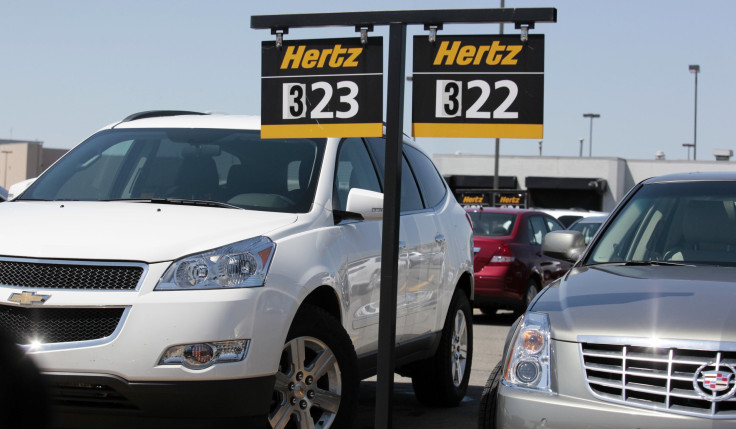Ford (NYSE:FD), GM (NYSE:GM) And Chrysler Losing Fleet Market Share To Asian Makers

With American consumers presently on a car-buying binge, General Motors Co. (NYSE:GM), Ford Motor Co. (NYSE:F) and Chrysler Group LLC have managed to wean themselves off reliance on sales to bulk-buy customers like auto rental companies and local governments.
But coming up from behind are the Japanese and Korean automakers, which saw a combined 46 percent average rise in fleet sales while the Detroit 3 saw a combined average decline of 17 percent, according to data from the manufacturers.
Automakers have a love-hate relationship with fleet sales. The business is a lucrative and integral part of the sector, but bulk purchases not only reduce margins, they can reduce resale values that can dissuade retail customers.
The biggest drop came from Chrysler, which saw fleet sales drop from 22,500 in July 2012 to 14,400 last month while its retail sales – purchases from individual customers – increased 21 percent.
General Motors and Ford typically claim most U.S. fleet sales – 61 percent last month – but they pulled that market share down from July 2012 by 6 percent and 9 percent respectively. Retail sales grew by 19 percent for Ford and 23 percent for General Motors in the same period of time.
Meanwhile, we’re seeing the Japanese and Koreans grow their share of the market.
The Korean duo Hyundai-Kia, which are often treated statistically like one car company because of their shared product development and marketing operations, moved up to No. 3 on the list of top fleet sellers in July, besting Chrysler by boosting fleet sales 43 percent from the same month last year while Chrysler’s numbers dropped 36 percent in the same period of time, pushing it to No. 4.
Nissan North America Inc. remained the fifth-largest fleet seller in July compared to July 2012, but on considerably higher sales volume—from 7,100 vehicles to 13,300.
Toyota Motor Sales, U.S.A., Inc. and American Honda Motor Co. have the smallest share of U.S. fleet sales among the top automakers, so while their percentage growth was high it’s based on relatively low volume, especially for Honda, which practically brags about the fact it doesn’t do much fleet business in the U.S.
“Discounts on large volumes of vehicles can have a long-term negative impact on the residual or resale values of vehicles purchased at retail,” the company said recently when it boasted that its Accord, Civic, CR-V and Odyssey are toping retail sales in their segments. “This effectively increases the cost of ownership for retail buyers when they eventually sell or trade-in their vehicles.
Here’s the breakdown of fleet sales for July for the top seven (with Hyundai and Kia combined) automakers:
- Chrysler down 36 percent to 14,400
- Ford down 9 percent to 42,700
- GM down 6 percent to 45,000
- Honda up 21 percent to 2,800
- Toyota up 34 percent to 8,800
- Hyundai/Kia up 43 percent to 16,800
- Nissan up 87 percent to 13,300
Here’s a list of the top 10 most rented cars in the U.S. last year from Sixt, showing the dominance of Hyundai in the British auto rental agency’s business.
- Hyundai Accent
- Hyundai Elantra
- Hyundai Sonata
- Hyundai Tucson
- Toyota Corolla
- Volkswagen Jetta
- Ford Mustang Convertible
- Chrysler Town & Country MPV
- Hyundai Santa Fe
- Mercedes-Benz C250
© Copyright IBTimes 2024. All rights reserved.






















